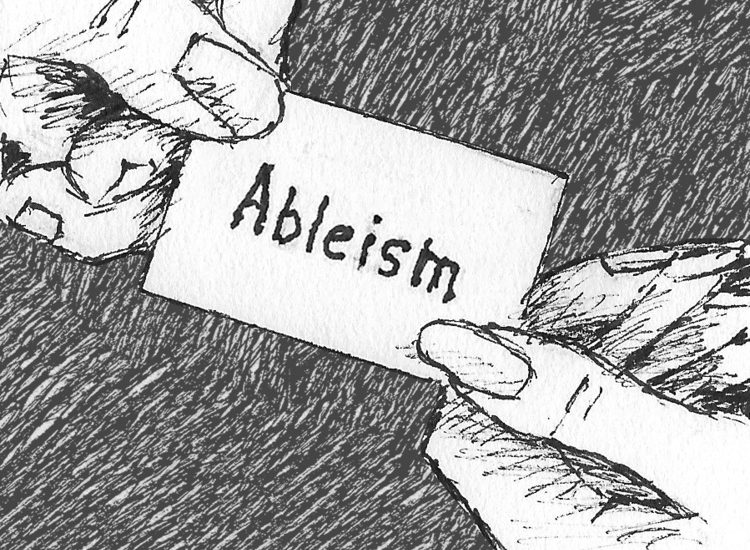
KJIPUKTUK (Halifax) – In 2014, the Disability Rights Coalition (DRC) filed a complaint to the Nova Scotia Human Rights Commission, along with three individuals—Beth MacLean, Joseph Delaney and Sheila Livingstone– who had been institutionalised for decades by the Province of Nova Scotia. Our goal was to end two massive systemic human rights violations: first, the mass segregation and institutionalization of approximately 1000 Nova Scotians with disabilities; and second, the wait-listing of over 1500 disabled Nova Scotians to receive services from the Department of Community Services (DCS). While non-disabled Nova Scotians who are eligible for support from DCS receive that support within days or weeks, Nova Scotians with disabilities are wait-listed for years to receive the supports they are eligible for.
In 2019, after a 35 day hearing, the Human Rights Board of Inquiry decision upheld the complaint by the three individuals, finding that their treatment by the Province was “a punishing confinement” and “soul destroying” resulting in feelings of isolation, hopelessness and despair. However, the Disability Rights Coalition’s complaint of systemic discrimination on behalf of the thousand other people living the same “punishing confinement” was dismissed. Instead, Board Chair Walter Thompson said that every person with disabilities needs to file an individual human rights claim to prove that their institutionalization/denial of meaningful access to social assistance is a human rights violation. Never mind that this one case had taken over five years to get to a first hearing! 0ver a thousand to go? Most sadly, Sheila Livingstone did not live long enough to benefit from the 2019 ruling.
But what have been the benefits for Beth MacLean or Joseph Delaney? When Board Chair Thompson ruled on compensation for the three individuals, his ableism was on full display. After recognizing “the wrenching diversion of their lives”, he ruled that each of the surviving complainants receive only a paltry sum as compensation for the decades of segregation and confinement in Institutions. And why? Because these two individuals have “a lack of capacity to benefit from the fruits of an award of the size that is advocated”, and that “Joey Delaney is so disabled that payment to him of a very large sum will not have a greater impact on his life than a moderate sum.” He goes on: “Beth MacLean does have capacity, but the potential benefit to her from a very large award is limited. I do not suggest that a payment ought to be limited because of disability, but….” But…he suggests exactly that! For Board Chair Thompson, the value of disabled lives is a fraction of the value of non-disabled lives. This, from our Human Rights Board of Inquiry.
As a result, both the Disability Rights Coalition and the three complainants (Ms. Livingstone is now represented by her sister Olga Cain) have filed an appeal of the findings.
The rights at stake in this appeal are two-fold:
- The right to equality – people with disabilities have the right to meaningful access to social assistance and services that meet their needs.
- Segregation is discrimination: The Province is discriminating against people with disabilities by unnecessarily institutionalizing them and failing to provide them with meaningful access to supports to enable them to live in the community
As a result of the Board’s decision, and the Province’s refusal to act, people with disabilities continue to face discrimination and segregation on a daily basis in Nova Scotia. Nova Scotia institutionalizes more people with disabilities than any other province in Canada. This segregation of people with disabilities deprives them of their place in the community – something we all take for granted and would never dream of taking away from others who are disadvantaged because of their sex, race or religion. Yet, for many people with disabilities in Nova Scotia, segregation and institutionalization are their only option. Because of the pandemic, the lives of people living in large congregated settings with multiple people often sharing bedrooms has been, and continues to be, even more wretched and isolated. And unsafe, the pandemic has further exposed the dangers that people face in these institutions.
Vicky Levack, a member of the DRC, knows full well the impact of institutionalization on people with disabilities. Vicky is 30 years old, is active in her community, advocates for herself and others, serves on many boards and committees, and yet she lives in what is commonly referred to as a ‘nursing home’ because she has been told by the Department of Community Services that this is the only option for her to receive the personal care supports she requires due to her disability. Despite her request for a community based option, she is not even on the DCS waitlist. As a result, she does not have the same opportunity to have a home in the community of her choosing, and to choose who she will share her home with, as her non-disabled peers do. Vicky is segregated and discriminated against daily. During the time that Premier McNeil was asking Nova Scotians to “stay the blazes home”, while many of us did our best to limit our physical contact with others, Vicky was given no choice; she was prevented from even going outdoors, and was not permitted to create a social bubble that would provide her the opportunity to spend time together with members of her family.
Vicky states that, “this systemic discrimination must be stopped. The compensation order for the complainants was particularly insulting. It is time to end segregation and discrimination against people with disabilities in Nova Scotia.”
The appeals will be heard on November 18 and 19. The hearing is scheduled to begin at 10 a.m. on both days. The Nova Scotia Court of Appeal will webcast the proceedings because of the very significant public interest in this case. Thousands of Nova Scotians with disabilities and their friends, families and allies across the country will be watching.
The DRC has a Facebook page, and a website with lots of information on the human rights case and other issues.
See also: National groups to join human rights legal fight on behalf of people with intellectual disabilities
With a special thanks to our generous donors who make publication of the Nova Scotia Advocate possible.
Subscribe to the Nova Scotia Advocate weekly digest and never miss an article again. It’s free!




This is an embarrassment for Nova Scotia. Why do we continue to allow discrimination on the basis of ability? We can do better.
After reading this I can’t believe that Nova Scotia is still living in the 1950s when mentally handicapped and disabled people were placed in institutions Today this is UNACCEPTABLE!! They should have the same rights and help as any citizen deserves.. this must change I hope and pray that tomorrow will be the start of that change
My name is Paul Thomas I was hired knowing I was disabled I was fired before I could even get to the hospital because I was in crisis universal reailty group told me I have to be a good boy pay my rent and basically shut up. They tried to take my housing I went into human rights and they said they would call me before April 17 and nobody did and I only kept my house bacusr I fought and stood up for my self